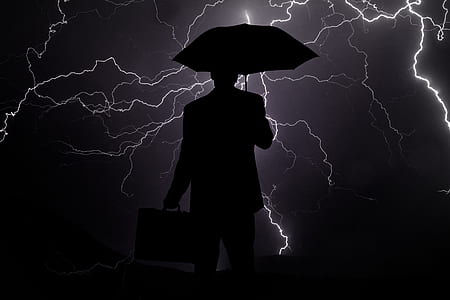Wise people often find meaning in every crisis. This could be caused by different focus, reframing of the challenge into an opportunity, or creation of opportunities that did not exist before the crisis. More on the subject here, here, here, here, here, here, here, here, here, and here.
Mobilization
During the crisis, people tend to mobilize their inner resources. The whole purpose of stress in the animal kingdom is mobilizing enough blood to the brain and extremities for a successful outcome of a hunt or a fight over social dominance. Our stress is often misplaced. People who shine during a crisis, usually do not get enough challenges in regular life.
Instead, most of us do not really perform better in a crisis but invest resources in similar goals. Suddenly the competition between us is less important than collaboration, and the main challenges are the same for most of us. We feel greater empathy toward each other and greater social support. There is a new purpose, and it is common for many people.
This mobilization results in outstanding performance not of individuals, but of teams and societies.
Humility and compassion
Our regular goals seem irrelevant when our existence is in danger. Usually, governments do not release funds to poor and struggling, but in a crisis, huge funds are released. Competitors tend to collaborate for common survival. Luxury is less important than basic commodities.
This change of focus adds a new dimension to our humility. We do not feel invincible, smart enough for any challenge and vane enough to ask for more. Instead, we want to feel the emotional support and kindness of others, and we are also likely to be kinder.
We are more compassionate to others, as their situation is very similar to our own. Biologically we are biased to feel compassion to people similar to us: in genetic composition, social status or shared cultural values. When we face a common threat, it makes all of us more equal.
Take a timeout
Quite often, the chronic stress of normal existence is much worse than the stress of crisis handling. When we take a time-out from our regular duties, we free a lot of resources. If these resources are not immediately mobilized for the new goals, we have both time and resources to address different issues. We can finally do something we could previously only dream to do.
At the same time, we often get a huge change in our environment. There is a chance to get bored, but there are also new sensory inputs. We become more creative and can generate new revelations.
Mindfulness
Partially due to the freed resources, and partially due to their mobilization, we are likely to notice the small things we usually miss. Basics stop to be so basic. Simple things like water, air, freedom to walk, even toilet paper, get a new appreciation. We do not need to practice mindfulness as we become naturally mindful.
While we tend to get more emotional, we also become better regulating our emotions. I am not really sure why. Possibly there is some mobilization in executive functions like we see in flashbulb memory effects.
Structure
Quite often a period of crisis is a period of changing structures. Old limitations often disappear, as the old structures are destroyed or flooded with challenges. The new structures might be more open for our participation or beneficial for us. Various new structures compete with each other and we have a chance to make a positive change in our lives.
This is true for all kinds of structures:
- New opportunities for entrepreneurs as new social and technological needs spark innovation
- Social evolution, making space for volunteers and lobbyists
- A different form of education, curing some mistakes of the education system
- A new daily routine, making space for things we could not previously do
We should embrace new structures, yet we should choose wisely the structures to embrace.
Information
In times of crisis, information is power. Power holders try to manipulate the information we get. This is probably better than the panic mixed with disinformation abundant in social media. The mere challenge of getting reliable information sparks new ways of finding and processing the information itself. At the same time, we also get a new appreciation to information and knowledge.
Balance and humor
In the steady state, we experience a sort of balance. This balance is crucial for us to perform certain tasks almost automatically. As the balance shifts during a crisis, we get a higher level of ups and downs, we step out of our emotional comfort zone and often become more resilient.
This disbalance also creates a lot of funny situations. We have many opportunities to make fun of human nature. Laughing is something people learned to survive changes: old air and old emotions are pushed violently from our lungs, as new air comes into them. We can practice this as a breathing exercise, but laughter is much more natural.
Gratefulness
From all of the new perspectives which we learn during a crisis, gratefulness stands out. We are grateful for our survival, to the resources that allow survival, and to the people who help us. No better time to start practicing gratefulness.
Doing nothing is hard
Times of crisis are often characterized by long and boring waits with short periods of extreme (and often violent) activity between them. Doing nothing is often harder than facing our deepest fears. The ability to wait is precious, as it allows to choose the best timing for our activity.
“I can think. I can wait. I can fast.”

Get 4 Free Sample Chapters of the Key To Study Book
Get access to advanced training, and a selection of free apps to train your reading speed and visual memory

